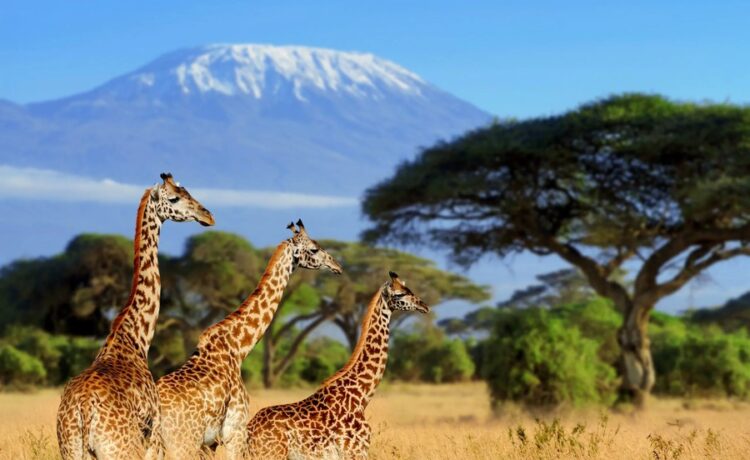When it comes to unparalleled natural beauty, rich biodiversity, and unforgettable adventures, few destinations can rival Safari Africa. Spanning vast landscapes across multiple countries, this region is a treasure trove for wildlife enthusiasts, photographers, nature lovers, and adventurers alike. From the sweeping savannahs of Kenya to the lush wetlands of Botswana, Safari Africa offers an experience that transcends mere travel—it’s a soul-stirring journey into the heart of untamed wilderness.
In this article, we’ll delve deep into what makes Safari Africa so special, highlighting its iconic locations, diverse ecosystems, incredible wildlife encounters, cultural experiences, and practical tips for planning your dream safari adventure. Whether you’re dreaming of spotting the Big Five or immersing yourself in local traditions, Safari Africa has something for everyone.
The Allure of Safari Africa
Safari Africa isn’t just about ticking off bucket-list items; it’s about connecting with nature on a profound level. Imagine waking up to the golden rays of sunrise spilling over endless plains dotted with acacia trees, hearing the distant roar of lions echoing through the night, or watching elephants gather at a watering hole as the sun sets in fiery hues. These moments are not just photographs—they become memories etched in your heart forever.
What sets Safari Africa apart is its sheer diversity. Each country within the continent boasts unique landscapes, ecosystems, and wildlife populations. For instance, Tanzania’s Serengeti National Park is renowned for the Great Migration, where millions of wildebeest and zebras traverse perilous rivers in search of greener pastures. Meanwhile, South Africa’s Kruger National Park offers some of the best opportunities to see the Big Five—lion, leopard, rhinoceros, elephant, and buffalo—in their natural habitat.
But Safari Africa isn’t only about animals. It’s also about exploring ancient cultures, learning from indigenous communities, and understanding the delicate balance between humans and nature. This holistic approach ensures that every safari experience is both thrilling and meaningful.
Iconic Destinations for Your African Safari Adventure
1. Maasai Mara (Kenya)
Located in southwestern Kenya, the Maasai Mara is synonymous with safaris. Known for its dramatic predator-prey interactions and abundant wildlife, this reserve is particularly famous for the annual Great Migration. Between July and October, thousands of tourists flock here to witness one of Earth’s most spectacular natural phenomena. Beyond the migration, visitors can enjoy game drives, hot air balloon rides, and interactions with the Maasai people, whose vibrant culture adds another layer of richness to the experience.
2. Serengeti National Park (Tanzania)
Adjacent to the Maasai Mara, Tanzania’s Serengeti is equally breathtaking. Its vast grasslands stretch as far as the eye can see, providing ideal conditions for large herds of herbivores and predators. The park is divided into several zones, each offering distinct experiences. For example, the Central Serengeti is perfect for year-round game viewing, while the Western Corridor is known for its crocodile-infested rivers during the migration season.
3. Okavango Delta (Botswana)
Unlike traditional land-based safaris, Botswana’s Okavango Delta offers a water-centric experience. This UNESCO World Heritage Site is a labyrinth of channels, lagoons, and islands teeming with life. Visitors can explore the delta via mokoro (traditional dugout canoes), spot hippos lounging in shallow waters, and marvel at birdlife like kingfishers and fish eagles. The delta’s pristine beauty makes it a haven for eco-conscious travelers.
4. Kruger National Park (South Africa)
As one of Africa’s largest and oldest national parks, Kruger needs no introduction. Its well-maintained infrastructure allows for self-drive safaris, making it accessible even for first-time visitors. In addition to the Big Five, Kruger is home to over 500 bird species and countless other mammals, reptiles, and insects. Guided night drives and bush walks add extra excitement to the itinerary.
5. Namib-Naukluft National Park (Namibia)
For those seeking something different, Namibia’s Namib-Naukluft National Park offers stark desert landscapes juxtaposed against towering sand dunes. Sossusvlei, with its iconic red dunes, is a photographer’s paradise. Wildlife such as oryx and springbok have adapted remarkably to survive in these arid conditions, showcasing nature’s resilience.
Wildlife Encounters That Leave You Spellbound
One of the main reasons people visit Safari Africa is to encounter its incredible wildlife. Here are some highlights:
- Big Cats: Lions, leopards, and cheetahs reign supreme across many reserves. Observing them hunt, play, or simply rest under the shade of a tree is nothing short of mesmerizing.
- Elephants: Gentle giants roam freely in places like Chobe National Park in Botswana and Amboseli National Park in Kenya. Witnessing a herd led by a matriarch crossing the plains is a humbling sight.
- Rhinos: Both black and white rhinos face threats from poaching, but conservation efforts in parks like Hluhluwe-iMfolozi in South Africa and Lewa Wildlife Conservancy in Kenya are helping protect these magnificent creatures.
- Birdlife: With over 2,000 bird species recorded across Africa, birdwatchers will be spoiled for choice. From ostriches strutting across the savannah to flamingos painting lakes pink, avian wonders abound.
Cultural Immersion: Connecting with Local Communities
African safaris aren’t solely about observing wildlife—they’re also about engaging with the people who call this land home. Many lodges and tour operators collaborate with local communities to offer authentic cultural experiences. For example:
- Maasai Tribes: In Kenya and Tanzania, spending time with the Maasai offers insights into their semi-nomadic lifestyle, traditional dances, beadwork, and sustainable practices.
- San People: Also known as Bushmen, the San inhabit parts of Botswana and Namibia. Their intimate knowledge of the Kalahari Desert and survival skills passed down through generations make them fascinating guides.
- Zulu Villages: In South Africa, visiting Zulu villages provides glimpses into warrior traditions, storytelling, and communal living.
These interactions foster mutual respect and appreciation, reminding us that tourism can be a force for good when done responsibly.
Practical Tips for Planning Your Safari Adventure
Planning a safari requires careful consideration to ensure a seamless and enjoyable trip. Here are some essential tips:
- Best Time to Visit: Timing depends on your destination and interests. For example, East Africa’s dry season (June to October) is ideal for game viewing, while Southern Africa’s shoulder seasons (April-May and September-November) offer pleasant weather and fewer crowds.
- Choosing Accommodation: Options range from luxury lodges and tented camps to budget-friendly guesthouses. Consider factors like proximity to wildlife areas, amenities, and sustainability initiatives.
- Packing Essentials: Neutral-colored clothing, sturdy shoes, sunscreen, binoculars, cameras, and insect repellent are must-haves. Don’t forget a reusable water bottle to minimize plastic waste.
- Health and Safety: Consult your doctor about vaccinations and malaria prophylaxis before traveling. Always follow your guide’s instructions during game drives to stay safe.
- Responsible Tourism: Support eco-friendly operators and avoid activities that exploit animals. Respect local customs and leave no trace behind.
Why Choose Safari Africa?
Ultimately, Safari Africa appeals to our innate desire to reconnect with nature and rediscover our place within the larger web of life. It challenges us to slow down, observe, and appreciate the intricate details often overlooked in our fast-paced world. Every moment spent in the wild—from tracking elusive leopards to listening to the symphony of nocturnal sounds—is a reminder of how interconnected we all are.
Moreover, choosing Safari Africa supports vital conservation efforts. Many reserves and lodges actively contribute to protecting endangered species, preserving habitats, and empowering local communities. By visiting, you’re not just indulging in a once-in-a-lifetime adventure—you’re becoming part of a global movement to safeguard our planet’s future.
Conclusion
Safari Africa is more than a destination; it’s a celebration of life in its purest form. Its breathtaking landscapes, awe-inspiring wildlife, and vibrant cultures create an intoxicating blend that captivates the senses and nourishes the soul. Whether you’re chasing adrenaline-pumping encounters or serene moments of reflection, this extraordinary continent promises an adventure unlike any other.
So pack your bags, grab your camera, and embark on a journey that will redefine how you perceive the world. Safari Africa awaits—with open arms and boundless wonders ready to unfold before your eyes.







